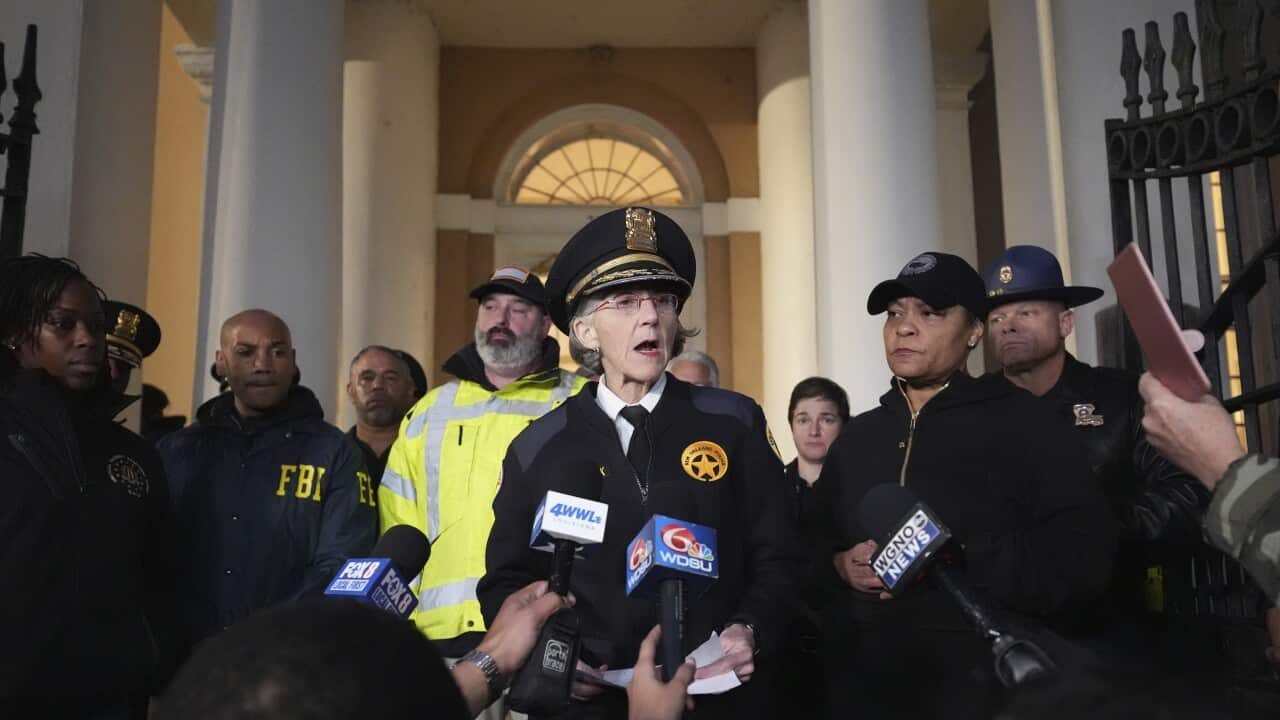Key points
- Visa subclasses 417 and 462 allow visa holders to work and travel in Australia.
- Those who agree to work in certain sectors, including agriculture, have the chance to extend their stay in Australia for up to three years.
- With Australia's international borders closed due to the pandemic, backpackers from overseas aren't able to enter the country, causing a shortage of temporary workers.
Laura, an Italian national, came to Australia on a Working Holiday visa a few years ago. Now she is managing the harvest at a blueberry farm in Gellibrand, Victoria.
She says it's an unusual time for the business.
"We usually start recruiting around ten days before the harvest. We put out a call on Facebook and, after a couple of days, we have to take it off, because we are flooded with requests. But this year we started a month earlier, and for the first week, we received zero requests," she tells SBS Italian. With Australia’s international border shut due to the COVID-19 pandemic, Laura’s difficulty in recruiting farmworkers is shared by many agricultural employers.
With Australia’s international border shut due to the COVID-19 pandemic, Laura’s difficulty in recruiting farmworkers is shared by many agricultural employers.

Laura and her partner in their blueberry farm in Victoria Source: Laura Milocani
A projects a shortage of up to 26,000 workers by the end of 2021 if Australia's international border reopens in March 2021. The shortfall will be worse if the border remains shut beyond March this year.
Different ways the government is trying to attract more people to work in the agriculture sector
From 1 November 2020, to those who move to work on the farms.
The refund is capped at $2,000 for those on temporary visas.
A spokesperson for the Department of Education, Skills and Employment told SBS Italian that the step is designed to address labour shortages in agriculture.
“The Australian Government prioritises Australian job seekers to make it easier for them to gain work experience and take up new ongoing and sustainable employment,” said the spokesperson.
The Government recognises that international workers, including eligible working holiday makers and students with working rights, are an important source of labour for the agricultural sector.
However, the Department didn't comment on the reason behind different amounts offered to Australians and temporary visa holders.
While these incentives cover a full refund of travel expenses, accommodation is only covered for a period up to two months, as agricultural work is by nature seasonal and often offered as short-term employment.
In Queensland, it is expected that there will be a shortfall of up to 6,000 seasonal workers in the horticulture sector during peak harvest periods. to cover the costs for those who choose to work on a farm for at least eight weeks.
This opportunity is only offered to Queensland residents.
Western Australia is also offering
The WA government says Working Holiday Makers are only eligible for travel allowance, and the scheme is designed to provide new opportunities for WA job seekers in regions.
As of 18 January 2021, Western Australia government had received 505 applications and a further 391 were being evaluated. In Queensland, there have been 85 requests for the package offered by the state government.
At the federal level, 453 transfer agreements were signed, 197 for Australian citizens and 256 for temporary visa holders.
Relocation Assistance in short
- Reimbursement is granted after a minimum of 120 hours of work and a minimum stay of six weeks.
- In some cases, the initial travel and accommodation costs may be paid directly by the Harvest Trail service provider, which manages this service on behalf of the Australian Government.
- It is essential to have a job offer and contact the relevant Harvest Trail service provider before moving.
Italian national Serena started as a backpacker in Mildura in Victoria and now works on a potato farm in Parrakie, South Australia. She says most of the workers on farms where she has worked are overseas workers, who come to Australia for the experiences the land Down Under has to offer.
Nadir, another Italian backpacker who has recently ended a contract on a farm in Western Australia, says he prefers to work on farms rather than any other sector.
"I would never work in hospitality; I don't like it; I prefer working on a farm. Maybe there are people who wouldn't be comfortable on a farm. It's a personal choice".
However, he sounds a word caution in the same breath.
"You have to be lucky to find a good farm," he says, adding that farm work is not for everyone. There have been instances where working conditions on farms were found to be below standards, with inadequate pay, and in some cases abuse.
There have been instances where working conditions on farms were found to be below standards, with inadequate pay, and in some cases abuse.

Nadir worked in farms in Italy and has continued to do it in Australia. Source: Nadir Trabelsi
Gabrielle Marchetti is Principal Lawyer at JobWatch, an employment rights legal centre which assists Victorian, Queensland and Tasmanian workers. She says it's important to come forward in case of abuse or any kind of workplace exploitation.
"The law in Australia applies to everyone. It doesn't just apply to Australian workers,” she says.
Despite the hard work that farm work involves and the varied experiences, these backpackers remain enthusiastic towards life on farms in Australia.
“Whether it's a good or a bad experience, it has to be done. It makes you grow a lot", says Alessandro who embarked on his backpacking journey in Australia three years ago on a banana farm in north Queensland.
"I would do it another hundred times; it is a wonderful experience." He has now moved on and lives in Melbourne whereas Laura has set aside her engineering degree and progressed her career in agriculture.
He has now moved on and lives in Melbourne whereas Laura has set aside her engineering degree and progressed her career in agriculture.

Alessandro started his backpacking adventure working for a banana farm in northern Queensland. Source: Alessandro Martinone
She unhesitatingly says that working on a farm is "an experience that has to be tried".
"It's one of those special things Australia can offer: a wonderful life experience, you learn a lot. And you meet a lot of people, and you discover a certain side of nature. Many of us come from cities, big cities even. It reconciles you with nature."




